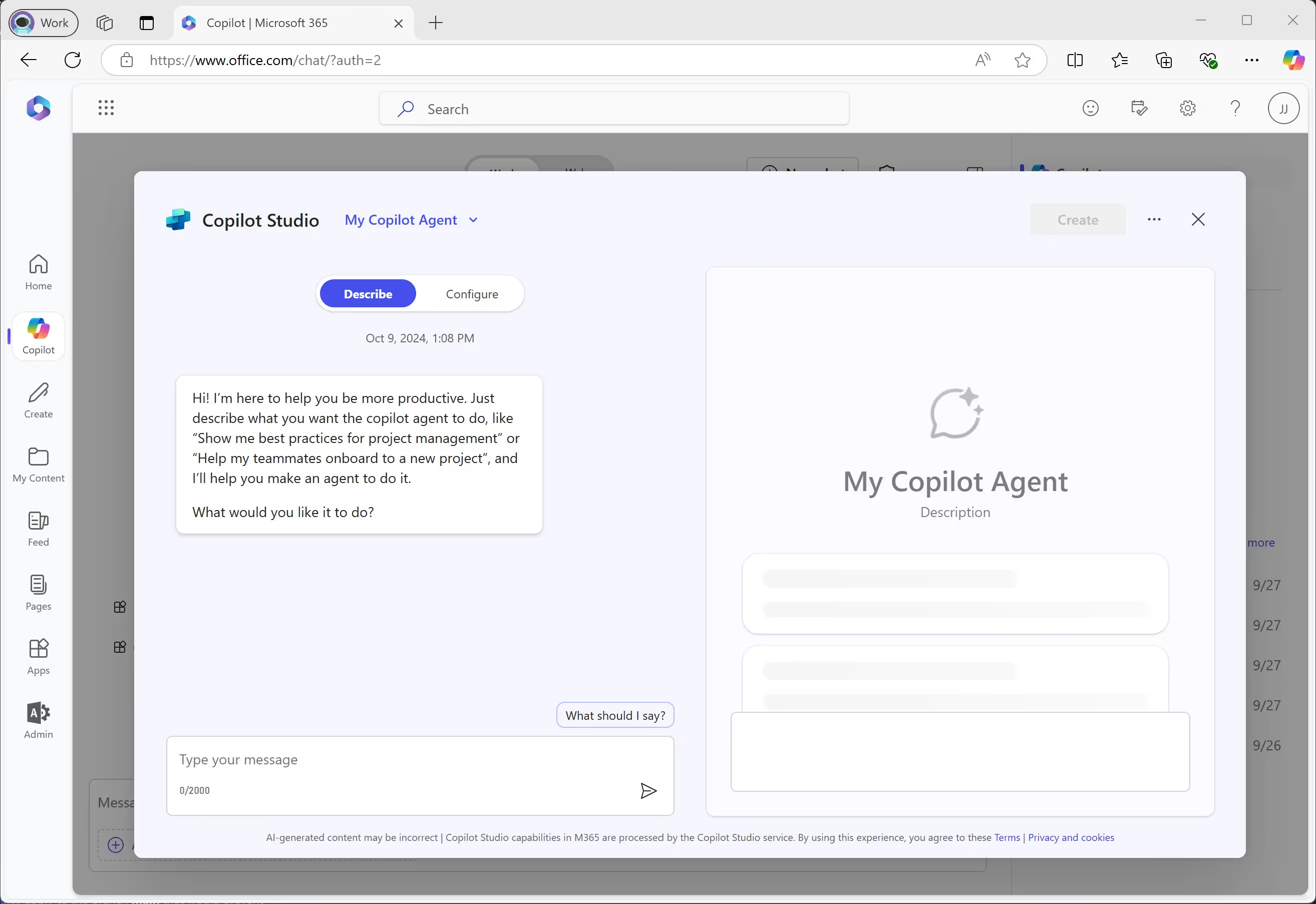
WhatsApp AI Agents

.avif)


.avif)
The rise of WhatsApp AI agents – AI-powered assistants on the world’s most popular messaging app – is creating a breakthrough in customer engagement. With nearly 3 billion users globally, WhatsApp is an ideal channel for brands to connect with customers directly. Microsoft’s latest Copilot Studio release now lets businesses deploy generative AI agents to WhatsApp with just a few clicks. In other words, companies can focus on building intelligent experiences rather than managing complex integrations. As Microsoft notes, publishing agents to WhatsApp “opens up new markets for conversational and generative experiences” and dramatically shortens time-to-market. For enterprises and mid-size businesses, this means turning every WhatsApp chat into a potential touchpoint for sales, support, and marketing – powered by advanced AI.

WhatsApp isn’t just huge – it’s sticky. The platform reached roughly 2.78 billion users in 2025, and it enjoys sky-high engagement (WhatsApp messages have an open rate of about 98%). Consumers already prefer messaging brands on WhatsApp over email or phone. In sectors like FMCG (fast-moving consumer goods), people frequently use WhatsApp to ask questions about products (e.g. shelf life, ingredients) and expect quick answers. All this makes WhatsApp a natural hub for conversational commerce – the blend of messaging and shopping. Instead of static ads or email blasts, companies can have real-time two-way conversations in-app. WhatsApp Business also offers rich tools (product catalogs, buttons, etc.) that fit seamlessly into chat workflows. In short, if your customers are on WhatsApp, putting an intelligent assistant there can meet them where they already are and dramatically improve engagement.
Until now, deploying chatbots or AI assistants on WhatsApp required custom engineering. Microsoft Copilot Studio changes that by introducing a built-in WhatsApp channel. After linking your WhatsApp Business Account via Azure Communication Services, Copilot Studio lets you choose a phone number or group endpoint and publish your agent in minutes. The service handles the plumbing – fetching your WhatsApp configuration and connecting the agent – so your makers can focus on the AI logic. In practice, this means a marketer or developer can design a Copilot agent (using LLMs, private data or knowledge bases), select “WhatsApp” as a channel, and immediately test it in real WhatsApp chats. There’s no need to build separate mobile apps or integration pipelines. As a result, enterprise teams can scale new generative AI WhatsApp experiences rapidly and consistently across all messaging channels.
.avif)
WhatsApp AI agents differ fundamentally from the rule-based chatbots of the past. Traditional bots are like vending machines of conversation: they follow scripted flows and give pre-set answers. They lack contextual intelligence and learning, so they struggle with unexpected questions or changing contexts. In contrast, generative AI agents use large language models and live data to carry natural, flexible conversations. They can interpret intent, recall past exchanges, and even summarize or hand off when needed. More importantly, AI agents can act autonomously – not just chat. For example, a WhatsApp agent can automatically handle a delayed shipment: it might check inventory, reroute the order, and apply a shipping discount for the customer, all without human intervention. A traditional chatbot would only inform the user of the delay and offer to connect to support. Digital Bricks CEO, Max Dinser explains, “Generative AI chatbots provide information when prompted; AI agents proactively take action toward their goals, resolving complex tasks entirely”. In practice, this means a WhatsApp AI agent can do things like personalize offers based on loyalty status, process returns by consulting purchase history, or break a complex issue into subtasks – capabilities that fixed chatbots simply can’t match.
.avif)
Artificial intelligence on WhatsApp brings real-time, proactive engagement – not just static replies.
These capabilities make generative AI WhatsApp agents far more powerful than earlier bots. As Salesforce notes, chatbots “don’t understand language in the same way” as agents and struggle outside predefined flows. In contrast, the new agents are like digital assistants in your workflow: they can summarize information, write custom copy, and handle tasks autonomously, all within a WhatsApp chat.
.avif)
.avif)
WhatsApp AI agents enable full shopping experiences in chat – from recommendations to checkout.
On the business side, this technology unlocks transformative use cases for ecommerce and FMCG companies:
Generative AI WhatsApp agents turn a simple messaging thread into a mini sales channel and support center. They enable conversational commerce by blending human-like chat with automated ordering, updates, and promotions – capabilities far beyond the reach of legacy chatbots.
This new WhatsApp channel is a game-changer – and the time to act is now. Whether you’re in retail, CPG, or any industry with a customer-centric focus, adding an AI assistant on WhatsApp can unlock new revenue and efficiency. Digital Bricks specializes in designing and deploying these conversational AI solutions. We can help your team build and train custom WhatsApp AI agents (or enable your internal developers to do so) quickly and securely.
Ready to get started? Contact Digital Bricks to learn how to scale generative experiences on WhatsApp for your business. Our experts will show you how a WhatsApp AI agent can deliver proactive engagement, contextual intelligence, and conversational commerce at enterprise scale. Don’t let traditional chatbots limit you – let Digital Bricks help you tap the full potential of AI on WhatsApp.